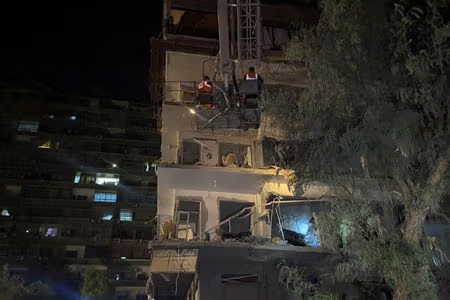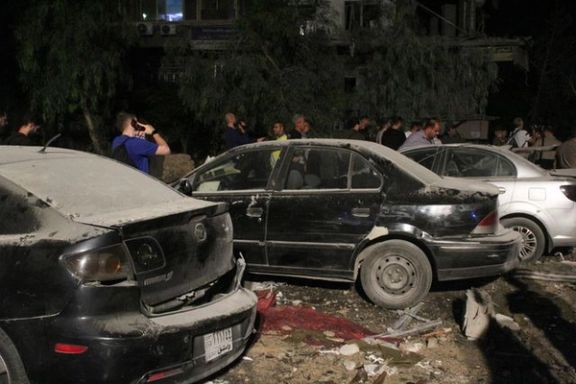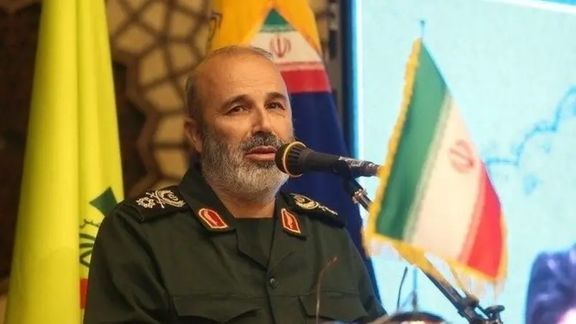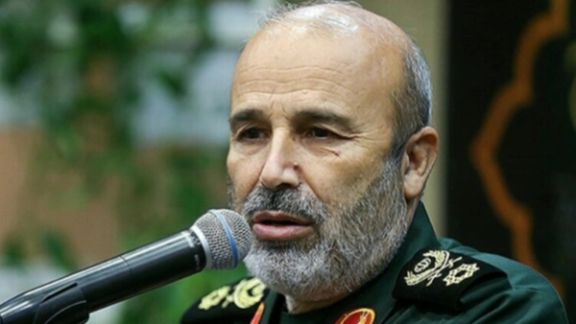IRGC commander suspected dead after Israeli airstrike in Damascus

An alleged Israeli airstrike near the Iranian embassy in Damascus is believed to have killed Mohammad Reza Fallahzadeh, deputy commander of Iran's Quds Force.

An alleged Israeli airstrike near the Iranian embassy in Damascus is believed to have killed Mohammad Reza Fallahzadeh, deputy commander of Iran's Quds Force.
The attack, which took place in the Mezzah district of Damascus, resulted in the deaths of seven, and left 11 others injured, according to Syrian state media. The strike caused damage to nearby buildings, leading to widespread destruction in the area.
While Israel has not publicly commented on the incident, its military has conducted numerous strikes against Iran-linked targets in Syria in recent years. However, this latest attack comes amidst heightened tensions in the region following the October 7 Hamas assault on Israel, which triggered the ongoing Gaza conflict and Iran's proxies around the Jewish state acting in allegiance with the Iran-backed Palestinian group.
Hebrew-language media reports suggested the primary goal was to eliminate Fallahzadeh, with some pointing out the proximity of the targeted building to the Iranian embassy as possible evidence.
Syrian sources added further weight to the claims, noting that the building was only 500 meters from the embassy, a location that has long been seen as a hub of Iranian activity in Syria.

Israel's Channel 12 reported that the strike specifically targeted a meeting between commanders of Iran's Islamic Revolutionary Guard Corps (IRGC) and Iran's Lebanese proxy, Hezbollah, with Fallahzadeh reported to have been present at the time of the attack.
The Terror Alarm X account that covers events in Israel also reported that General Fallahzadeh was the primary target of the airstrike, further stoking rumors of a targeted killing.
Denials from Iranian sources
Iran was quick to reject the reports, the Iranian embassy in Syria issuing a statement emphasizing that no Iranian nationals were among the dead or injured. It echoes the April 1 attack, allegedly by Israel, on the Iranian consulate in Damascus, in which senior commanders were killed, along with multiple high ranking IRGC officials.
The strike would be the trigger for Iran's first direct attack on Israel, two weeks later, when Tehran sent a barrage of 350 drones, missiles and rockets towards the Jewish state, mostly intercepted by Israel and a US-led international coalition.
This was not the first time General Fallahzadeh’s name has surfaced in connection with Israeli strikes. In September 2023, similar reports circulated after an Israeli airstrike in Lebanon, but were quickly dismissed by IRGC officials.
Meanwhile, the top commander of Iran's overseas military operations, Esmail Qaani, has also been absent for several days, intensifying speculation as to whether he too may have been killed by Israeli forces.

Who is Fallahzadeh?
Mohammad Reza Fallahzadeh, born in the Yazd province of Iran in 1962, is a veteran commander in the IRGC. He gained prominence during the Iran-Iraq war and subsequently climbed the ranks of the IRGC, holding command positions in several provinces, including Fars, Isfahan, and Yazd.
Under Mahmoud Ahmadinejad’s presidency, Fallahzadeh served as the governor of Yazd province for six years, a political role that gave him additional visibility and influence within Iran.
Following the end of his gubernatorial tenure in 2013, he was transferred to Syria, where he became involved in military operations in support of Bashar al-Assad's regime during the Syrian Civil War. His role in key battles and his collaboration with Qassem Soleimani, the assassinated former commander of the Quds Force, killed by a US drone strike in 2020, earned him recognition.
During his time in Syria, Fallahzadeh was reportedly injured in an explosion, leading to his temporary return to Tehran for medical treatment. Despite this setback, he continued to rise through the ranks of the Quds Force and, in 2019, was appointed as its deputy coordinator. Following the death of his predecessor, Mohammad Hejazi, Fallahzadeh was promoted to deputy commander, making him the second-highest-ranking official in the Quds Force after Esmail Qaani.

Known by his battlefield nickname Abu Baqer, Fallahzadeh has become one of the most prominent figures in Iran’s extraterritorial military operations. His role within the Quds Force has involved coordinating Iran’s efforts across various regional conflicts, including supporting Hezbollah in Lebanon, militias in Iraq, and other proxy forces in the region.